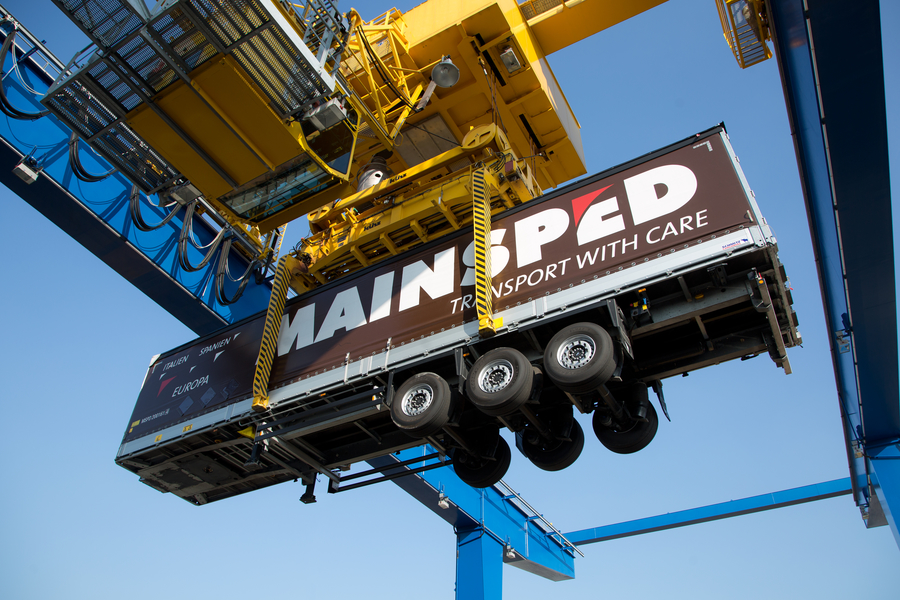Since the start-up of the Kombiverkehr terminal in Ludwigshafen in October 2000, six million containers, swap bodies and trailers have been shifted from the road to the railway. This means that six million truck journeys have been replaced by intermodal services over the long distance between the source and destination of the shipments by shifting them to the eco-friendly railway. Over four million tons of CO2 have been eliminated in this way, and the facility has relieved traffic congestion in the cities of Ludwigshafen and Mannheim.
“It is precisely in times like coronavirus that the logistics industry plays a key role in the secure supply of trade and industry. Intermodal transport has actually increased here over the past year in spite of coronavirus, because it has clear advantages in cross-border services compared with road transport alone.”
Harald Schlegel, managing director of KTL Kombi-Terminal Ludwigshafen GmbH
Kombiverkehr KG is also in on the act in Ludwigshafen. Not only as one of the leading operators at the BASF site with an extensive range of national and international train services, but also as a partner in the operating company. The holding in Ludwigshafen is just one of many. Kiel, Lübeck, Rostock, Kreuztal, Nuremberg, Bremen or the many DUSS terminals in Germany are further examples of Kombiverkehr’s deep involvement in this business field, which is so important to the company.
“For us, terminal holdings are the foundation for developing sustainable intermodal transport services. This is certainly in the interests of our many forwarding customers. Because it is our ambition to meet their requirements for terminals that function efficiently and smoothly at all times. The short chains of command between our headquarters in Frankfurt and the operations managers on site allow us to create excellent conditions for constructive communication. And to do so at times when rapid decisions are essential in order to stabilise and restore terminal operations if exceptional circumstances happen to arise.”
Heiko Krebs, Production Manager at Kombiverkehr
Background: The Kombiverkehr terminal in Ludwigshafen is one of the biggest facilities for transshipment from road to rail in Europe. The terminal covers an area of approximately 250,000 square metres and has seven gantry cranes as well as 13 transshipment platforms and sidings. Its maximum storage capacity – calculated on the basis of 20-foot containers – is 3,200 transport units. Around 25 train pairs depart from KTL every day to serve the leading economic regions of Europe in a way that is both effective and climate-friendly.
The owner of the terminal is BASF SE. The facility is operated by KTL Kombi-Terminal Ludwigshafen GmbH and it is open to all carriers in the region. KTL was founded back in 1999 and the facility was commissioned in October 2000. Having started out with around 20 staff, KTL now employs nearly 170 people at the terminal, which has since been extended twice. Apart from BASF SE, the partners of KTL are transport service provider Bertschi AG and HOYER GmbH Internationale Fachspedition, as well as CT operators Hupac Intermodal SA and Kombiverkehr Deutsche Gesellschaft für kombinierten Güterverkehr mbH & Co KG.










Comments are closed.